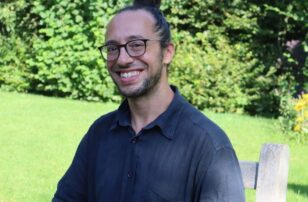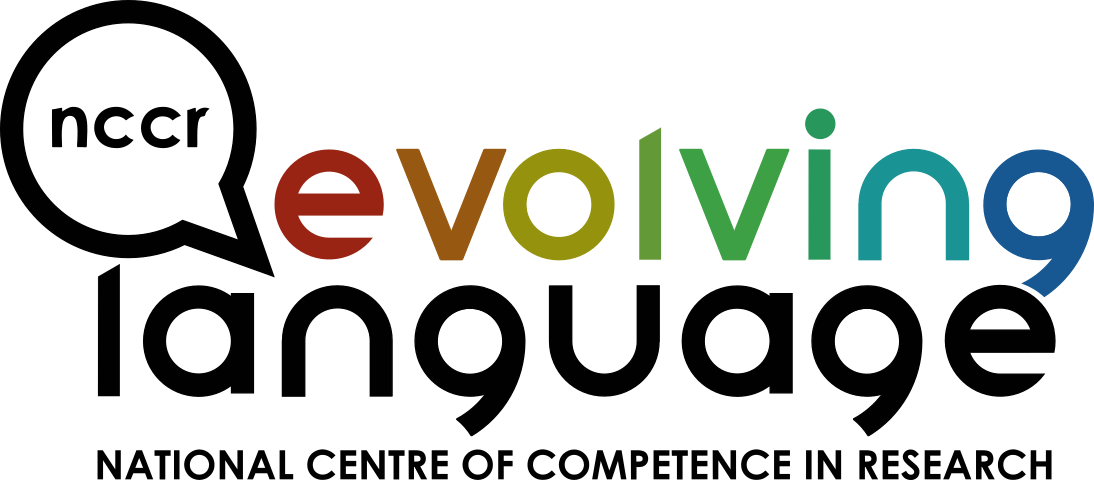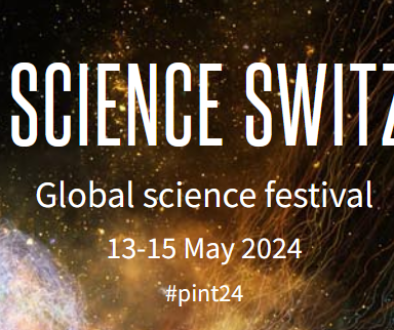An exciting new position for Prof. Alexis Hervais-Adelman: what’s next?
Starting September 2023, Alexis Hervais-Adelman will take a position as an assistant professor in the Department of fundamental neurosciences at the University of Geneva. As a neurolinguist, his main interest is the study of what he calls “extreme language”: “It is a term encompassing forms of language that are out of the norm or not ideal, e.g., the process of simultaneous interpreting or comprehension of acoustically degraded speech (e.g., speech transmitted by a cochlear implant or a low-quality video call).”

Photo © Zofia Sek
Alexis has already been working closely with the NCCR Evolving Language since its start, as their topics overlapped. His first interest was to figure out how speech could be understood by people with cochlear implants, devices replacing the natural processing of sound waves into electric signals transmitted to the cochlea (the part of the ear responsible for the reception of the sound signal and its transmission to the brain), in profoundly deaf individuals. “Those devices struggle to translate the complexity of speech and other noises into simple electric signals, resulting in poor quality of the signal on a spectral level. There needs to be compensation by the brain to fill the gaps and enable speech comprehension.” To his surprise, it appeared that brain areas implicated in the control of speech production are implicated in the compensation. In a separate strand of research, examining how simultaneous interpreters control their languages to perform the demanding task of understanding one language while producing another, he observed that nuclei concerned with action and motor control seemed to be critical to language control. These nuclei are embedded in structures that are well preserved across species and serve action control roles even in reptiles. “To me, this suggests that the original function of the nuclei has deviated over years of evolution, and it’s from those reflections that I started to wonder about evolution and participated in the NCCR Evolving Language.”
Entering this new chapter in his career, he will continue to work in collaboration with other NCCR researchers. “I intend to continue working on in-utero learning, and in the medium term, to start examining epigenetic changes that may be linked to auditory experience.” He also envisions new projects: “I plan to examine the time-resolved brain responses related to the construction of meaning when we process sentences, using the new magnetoencephalography (MEG) infrastructure available in Geneva’s Biotech Campus.” Other possible research topics include the study of sign language and gestures.
“Until now, I’ve mostly had an ontogenic approach to the evolution of language – meaning the development of the organism – but it is also crucial to consider the evolution of species, which I hope to develop.”



